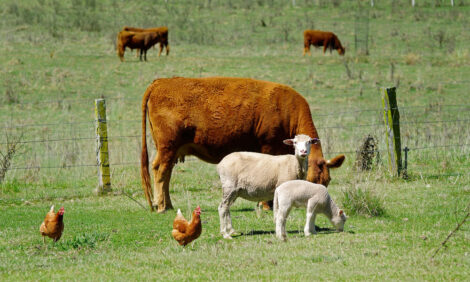



Countries Face Huge Fines For Exceeding Quota
EU - Denmark, the Netherlands, and Cyprus were the only Member States which exceeded their milk quotas in the 2009/2010 quota year, triggering superlevy fines for a total of €19 million.This compares with the €99m triggered last year and €340m the previous year. Following the increase in quotas agreed under the 2008 CAP Health Check, Italian production finished within quota for the first time, as global EU production finished some seven per cent below global quota volumes, compared with the 4.2 per cent margin in the 2008/09 quota year (April-March).
Dacian Cioloş, Commissioner for Agriculture and Rural Development, said: "Although these figures confirm that Italy has finally managed to stay within its quota, the 2009/2010 quota year will only be remembered for the particularly difficult market situation witnessed in so many Member States.
Through our High Level Group established specifically to examine the market crisis, we have studied the situation carefully, and I am optimistic that the proposals that I will present in December will enable dairy producers to respond better to evolutions in the market and provide a more stable environment as we move towards the end of the quota regime in 2015.”
Altogether these three countries accounted for an overrun of 70 000 tonnes of their national quotas. The Netherlands and Denmark exceeded their "deliveries" quota by 0.4 per cent, and Cyprus by 0.3 per cent, triggering fines of €13.03 million, €5.68 million and €125 000 respectively.
The Netherlands also overran its direct sales quota by some 2 268 tonnes, resulting in a further levy on direct sales of € 631 000. Based on Member State annual declarations, all other 24 Member States were within their quotas.
Although decisions in 2008 (quota increase and changes in the fat correction system) increased the scope for production considerably in 2009/2010, an increase in deliveries was only registered in 10 Member States (Belgium, Bulgaria, Denmark, Germany, Spain, Luxemburg, Malta, the Netherlands, Austria and Finland).
In fact, global deliveries were down 0.6 per cent - reflecting the difficult market situation - with a decrease of more than two per cent in 11 Member States (Czech Republic, Estonia, Ireland, Greece, France, Latvia, Lithuania, Hungary, Romania, Slovakia and Sweden). After fat correction, deliveries in 15 Member States (Bulgaria, Czech Republic, Estonia, Ireland, Greece, Latvia, Lithuania, Hungary, Malta, Romania, Slovenia, Slovakia, Finland, Sweden and United Kingdom) were at least 10 per cent below their national quota.
Cow's milk is marketed in the European Union on the basis of quotas. Each Member State has two quotas, one for deliveries to dairies, the other one for direct sales to consumers. These quantities are broken down among producers (individual quotas) in each Member State. For the 2009/2010 quota year (April 2009-March 2010), the total quota for deliveries to dairies was 144.8 million tonnes, divided into 836 000 individual quotas. The separate direct sales quota of 3.5 million tonnes is divided into nearly 370 000 individual quotas.
Where there is an overrun in the national quota, a surplus levy – or "superlevy" - is payable in the Member State concerned by the producers who have contributed to the overrun, at a rate of € 27.83 per 100kg of overrun. This levy has to be paid by producers of cow's milk on all quantities of milk or milk equivalent in excess of the quota marketed during a 12-month period, which runs from 1 April to 31 March. Each year before 1 September, the Member States must report to the Commission on the results of the application of the milk quota scheme over the previous period. This notification must be in the form of a completed questionnaire containing all the data needed to calculate the surplus levy.


